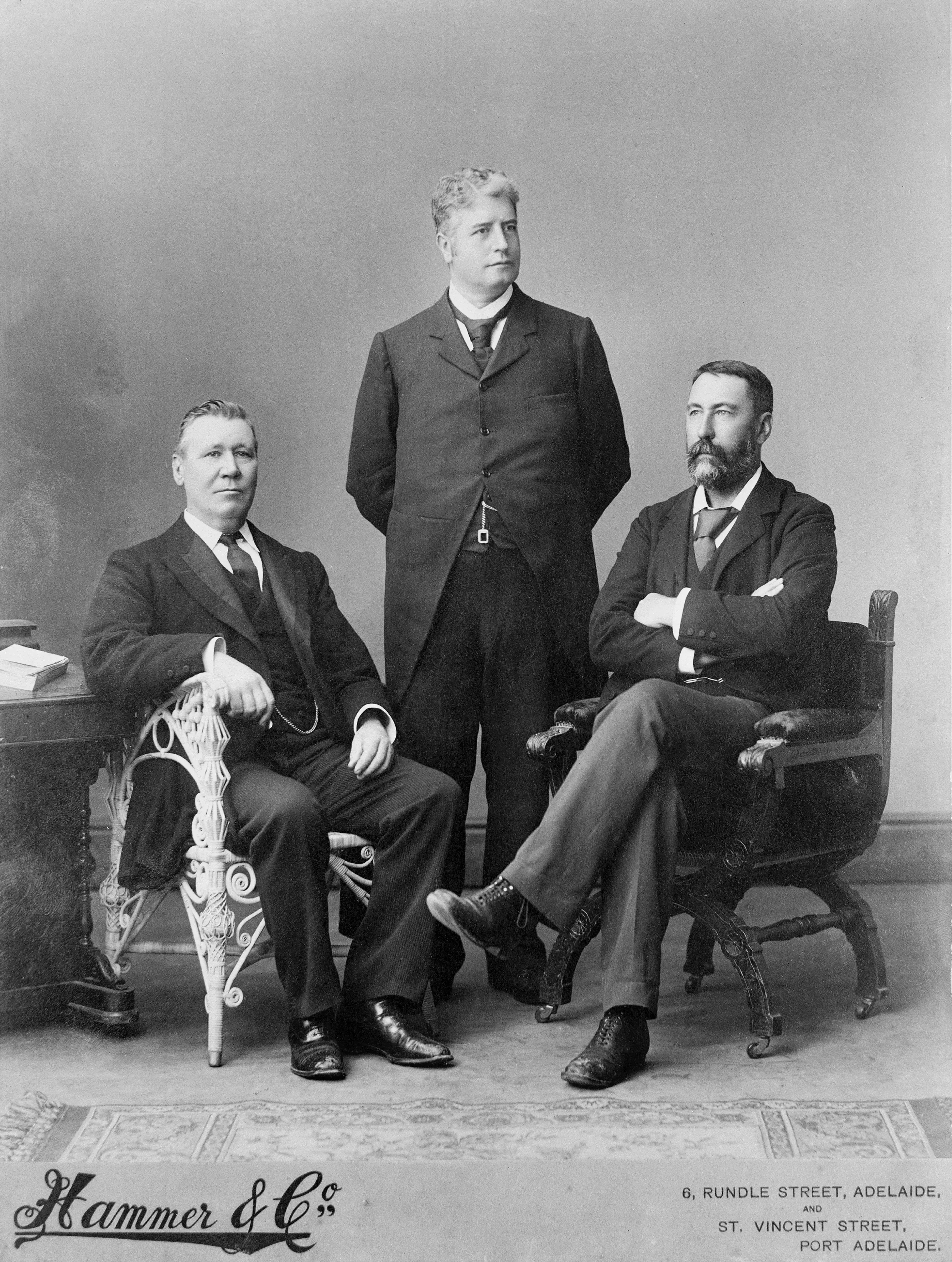EDMUND BARTON
Member of the Privy Council (1901), Knight Grand Cross of the Order of St Michael and St George (1902), Order of Rising Sun (1905)
Edmund Barton became Australia's first prime minister after the Commonwealth of Australia was proclaimed on 1 January 1901. The first federal election was held on 29-30 March 1901 and Barton's Liberal Protectionist Party formed a minority government with the support of the Labour Party.
18 January 1849
Sydney, New South Wales
7 January 1920
Medlow Bath, New South Wales
Jane Mason Barton
Liberal (Protectionist)
Photo: NLA/MS51
About
Edmund Barton played a pivotal role in achieving Federation, and was considered the logical choice to be Australia's first prime minister. Barton used his considerable skills and standing to forge the first federal ministry, largely from rival colonial leaders. Barton brought to fruition the idea that we could have 'a nation for a continent.'

Photo: State Library NSW
Barton took the oath of allegiance on New Year’s Day 1901 at Centennial Park in Sydney before an estimated crowd of 250,000 well-wishers. This almost did not happen, as the Governor-General, the Earl of Hopetoun, first invited New South Wales Premier William Lyne to become prime minister, before it became apparent that Lyne had little support.
Barton had grown up in ‘one of the most literary households in Sydney’ and attended Sydney Grammar School and the University of Sydney before becoming a barrister in 1871.
An interest in politics followed and, after two unsuccessful attempts to enter the New South Wales Legislative Assembly, he was elected for East Sydney in 1882. After serving as Speaker, he became Attorney-General in the Dibbs government. The Federation cause became Barton’s great passion after Henry Parkes made his Tenterfield speech in 1889.
Barton won the federal seat of Maitland West in the March 1901 election. Barton's health deteriorated towards the end of his period in office and on 24 September 1903 he announced his retirement from politics to become a judge on the newly created High Court.
MILESTONES
National flag
A national flag design competition results in 32000 entries. A flag incorporating elements from the five winning entries is chosen and flies as the Australian flag for the first time over the Royal Exhibition Building in Melbourne on 3 September 1901.
White Australia Policy
The implementation of what becomes known as the 'White Australia Policy' occurs with the passing of the Immigration Restriction Act on 23 December 1901. It requires that any immigrant may be required to take a 50 word dictation test in any European language.
Boer War contingent
The Australian government agrees to an official British request to provide soldiers for a Commonwealth contingent to the Boer War with the first troops sailing for South Africa on 19 February 1902.
Commonwealth Franchise Act
The Commonwealth Franchise Act on 12 June 1902 establishes uniform federal franchise. This gives the vote to adult British subjects who were resident in Australia for at least six months, but excluded Aborigines, Africans and Asians. The Act also provided women in the four states without female suffrage the right to vote and stand for election to parliament in Commonwealth elections.
Colonial Conference
Barton represents the Commonwealth of Australia for the first time at the Colonial Conference of British Empire prime ministers on 30 June 1902. This coincides with the coronation of King Edward VII.
Visit by Japanese naval squadron
On 21 May 1903 the government holds a banquet in honour of a visiting squadron of three Japanese warships. Later, in 1905, Edmund Barton receives the Order of the Rising Sun, First Class from the Japanese government for fostering friendship between Australia and Japan.
Establishment of the High Court
The Judiciary Act establishes the High Court of Australia on 25 August 1903 and Barton later becomes one of the first judges on the High Court bench.
360° VIEW
Parliament
The 1901 election result meant that the first parliament required careful management. Barton’s Liberal Protectionists held only a slim majority over the Liberal Free Trade Party, with the Labour Party holding the balance of power. It was a similar situation in the Senate where Labour also held the balance of power.
The first parliamentary session was an endurance test lasting from May 1901 until the middle of 1902. The earliest piece of legislation passed related to the restriction of Asian immigration and Pacific Islander labour.
This legislation was crucial as it locked in Labour support for Barton, but it also required deft negotiation as Britain raised concerns regarding obligations to Asian subjects of the Empire. Other legislation was passed to establish the Commonwealth public service, the High Court and the transcontinental railway.
The first Commonwealth tariff was introduced, but industrial arbitration legislation remained elusive for many years. These were considerable achievements, given Barton often needed to negotiate a new majority for each piece of legislation.

The drafting of the Australian Constitution was enstrusted to three lawyers Mr (later Sir) Edmund Barton (standing), Sir John Downer (left) and Mr Richard O'Connor (right), 1897. Photo: NAA

